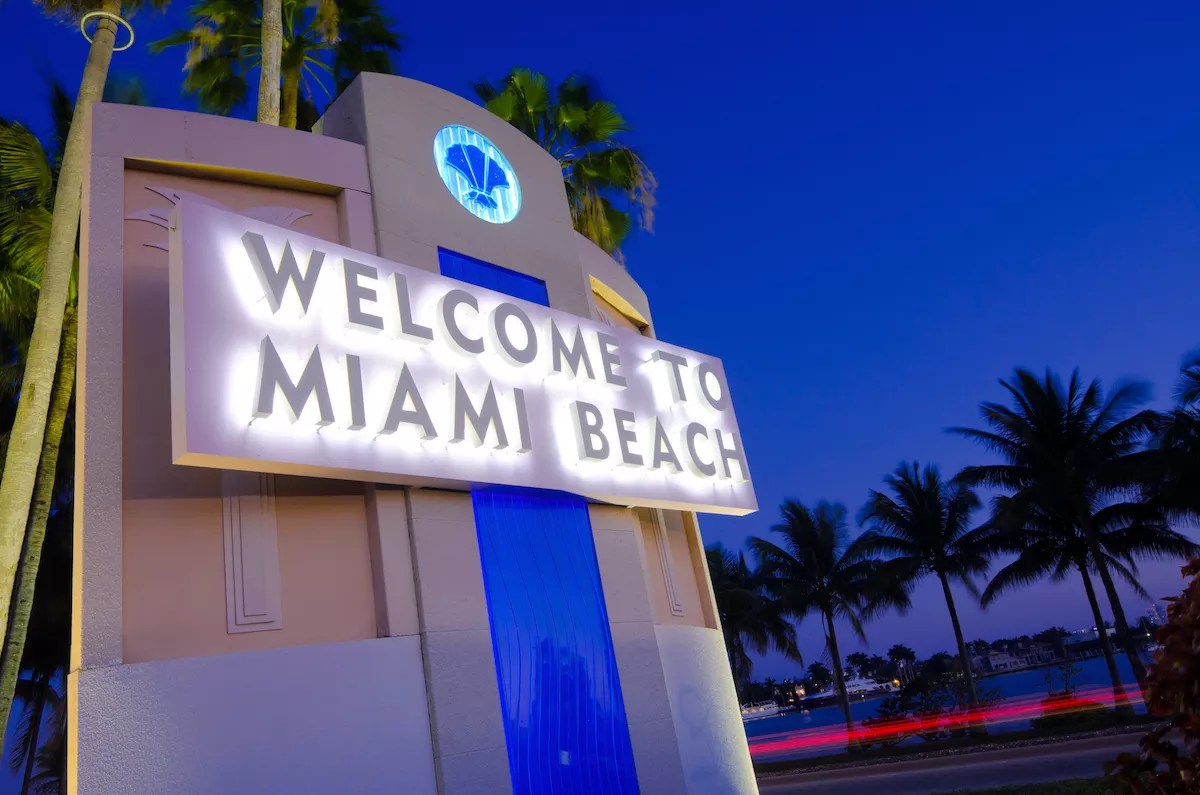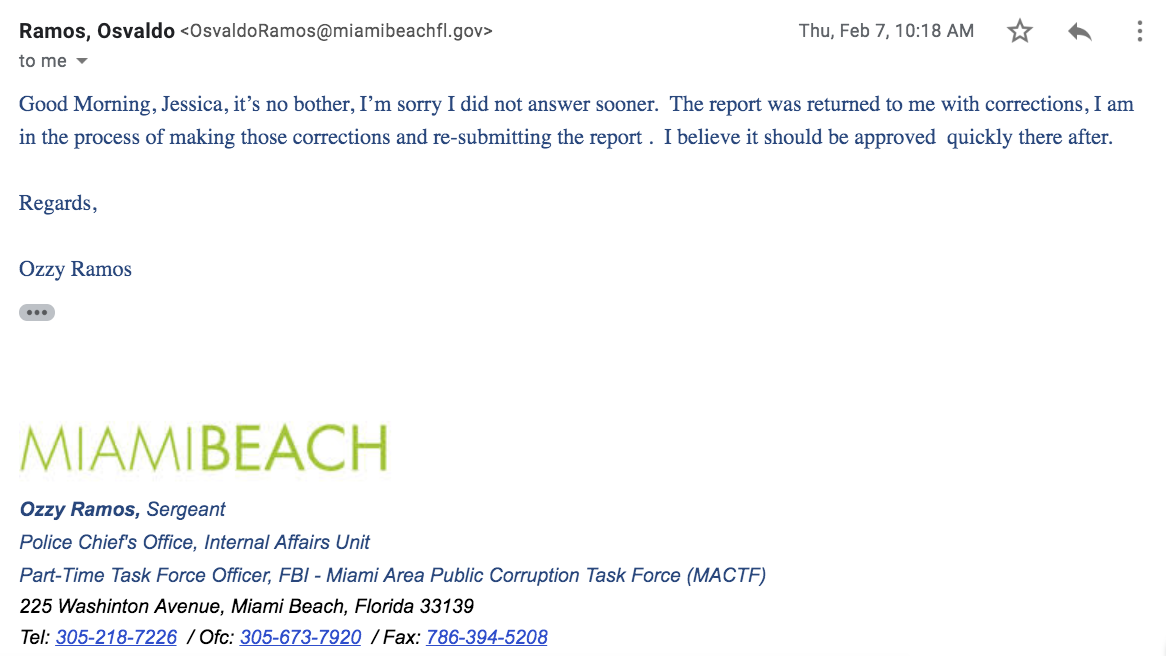
Photo by gregobagel / Getty Images

Audio By Carbonatix
FIn 2018, multiple employees in the Miami Beach Department of Parks and Recreation went public with their complaints of racial discrimination in the workplace. Black workers accused the department’s directors of referring to them as “criminals” and “animals” and segregating them into a park designated for “troublemakers.” They said the city had consistently promoted less-qualified white and Hispanic employees over long-tenured black workers.
After New Times published a story outlining the workers’ complaints, Miami Beach City Manager Jimmy Morales issued a long letter disputing the allegations and concluding there was “no evidence to support any claim of discrimination.” Nevertheless, the city assigned a sergeant with the Miami Beach Police Department (MBPD) to investigate.
Seventeen months later, the city released its final report, which clears itself of any wrongdoing.
“The finding of this investigation is that there is no evidence of discrimination,” the July 12 report states.
But what’s written elsewhere in the report seems to undermine the city’s conclusion that there was no racial discrimination within the Parks and Recreation Department. Miami Beach Human Resources Director Michael W. Smith, who authored the report, states that “the clear majority (83%) of those interviewed have never been subjected to or witnessed any discrimination.”
For the whistleblowers, that raises questions about the other employees.
“Seventeen percent – if they’ve been discriminated against, that’s a lot. So what are you saying?” says Ida Smart, a former Parks and Recreation employee who has spoken out about racial divisions in the department.
The report also contains at least one blatant falsehood: It states that New Times‘ first article made references likening Open Space Park to a “concentration camp,” which is not the case.
Over the course of the investigation, MBPD claims, it interviewed 60 current and former members of the Parks and Recreation staff; 14 others declined to be interviewed. The city’s final report quotes from the interviews but omits transcripts of the conversations.
Although 17 percent of employees claimed they experienced or witnessed racial discrimination, Smith dismisses their complaints as unfounded. The report states that those with allegations of mistreatment had their complaints dismissed by the Equal Employment Opportunity Commission (EEOC) and the Florida Commission on Civil Rights.
“Any discussion of discrimination came from those who had filed complaints with state and federal agencies, many of which were filed before the current Parks and Recreation management team was in place,” Smith writes. “Notably, nineteen (19) formal complaints filed by Parks and Recreation employees between 2000 and 2019 with the EEOC or Florida Commission on Human Rights by nine (9) individuals were dismissed with a ‘no reasonable cause’ finding. Two (2) complaints are pending.”
Some black workers believe the report is the city’s way of sweeping their complaints under the rug for good. Lee Holmes, a former parks employee who has filed several complaints of discrimination, says he doesn’t trust the final summary.
“We would like the transcripts from the interviews,” Holmes says. “We would like to see the hard copy.”
Like Holmes, Smart is skeptical of the city’s conclusion that no discrimination occurred.
“Who were these people that you interviewed, and what did they actually say?” she says. “I want to know what each person said.”
New Times has been requesting updates on the city’s investigation since it began last year. In February, the lead investigator, MBPD Sgt. Ozvaldo Ramos, wrote in an email that his draft report was being reviewed by a supervisor:

Screenshot
Nevertheless, the final report was not completed until July – suggesting that Ramos’ draft went through several edits before it was released to the public.
To better understand the city’s investigative process, New Times requested to see transcripts of the interviews police conducted with employees. Mark Fishman, Miami Beach’s senior assistant city attorney, quoted a cost of $5,201.16 for the 2,250-page investigative file and 61 hours of audio recordings.
When New Times asked to view only Sgt. Ramos’ draft report, Fishman said the city didn’t have it on file.
“Please be advised that no initial report(s) of Sgt. Ramos, with or without corrections on such initial report(s), exist within the public records kept or maintained by the City of Miami Beach,” Fishman wrote.
Holmes says the situation has not improved for Parks and Recreation employees. In August, the city reassigned him to the Sanitation Division, where he says he is scheduled for five fewer hours per week.
“That’s $400 short out of my paycheck a month,” Holmes says.
Holmes says he’s in negotiations with his union and the city regarding his work schedule, but he feels like he’s fighting an uphill battle.
“All that is nothing but retaliation,” he says. “Every other week or so is something. I’m being harassed.”
Smart was fired in September 2018 after she was reassigned to a job filling potholes with the Public Works Department. (Miami Beach has denied that she was “retaliated against in any manner.”) She has yet to find another job, but she doesn’t miss working for the city.
“I wouldn’t want to go back there for all the tea in China,” Smart tells New Times. “It’s just too much.”
A copy of the city’s final report is posted below: